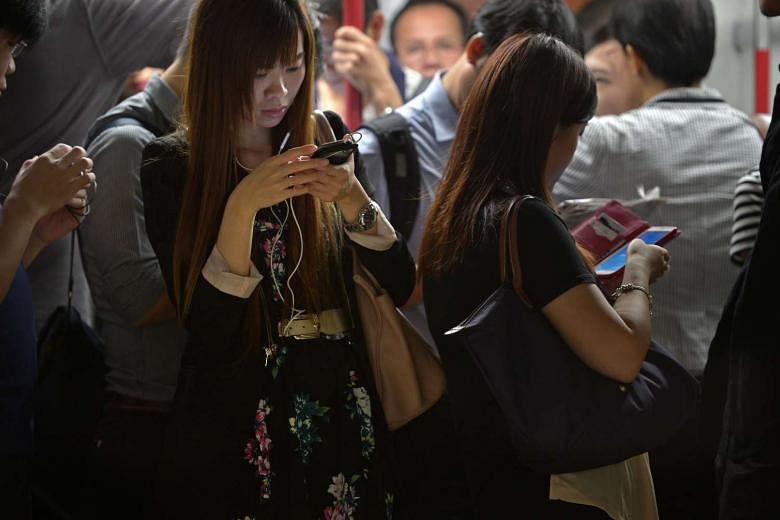Young people in Hong Kong need to be protected from the pitfalls of permanently publishing foolish, unpleasant or embarrassing things on the internet.
By Paul Surtees
China Daily (Asia) / Asia News Network
There is much to be said in favour of exercising your right to free speech, a cherished and very valuable right which is unfortunately far from being readily available to most citizens in many other parts of this troubled world of ours.
However, it is posited that this very right to free speech should in all reasonableness be limited, by not extending to words that put others in danger or distress.
It has famously been said to be unacceptable to shout "Fire!'' in a crowded indoor place, for example - for obvious reasons of physical safety.
So, this right to free speech is capable of being abused, and often is. And, as with all rights, responsibilities (here meaning limitations) should properly be linked to its exercise.
We may ask ourselves if those who malevolently choose to post on the various forms of social media grossly inflammatory, aggressive, abusive, untrue, hurtful, racially prejudiced, sexually-prejudiced, and/or nationally or religiously intolerant views should any longer be permitted to do so anonymously and freely.
Sometimes these activities even extend to obscenity, blasphemy, or financially, socially or sexually predatory activities.
By all means, let such commentators try their hand at writing letters or articles to the newspapers in the (perhaps vain) hope of getting their pathetic gibes published.
But the modern Internet and similar ways of promulgating their unjust, seriously divisive, hate-filled and downright nasty comments should not be so freely available for them to use as a vehicle for airing their shameful views; and especially not when the cowardly commentator does so while hiding behind a screen of online anonymity.
It appears that many of those blogging and otherwise posting their views online are youngsters; indeed many have not yet left school. We need to protect the young from the pitfalls of so widely - and permanently - publishing their own youthful errors of judgement.
It is a sad reflection on the modern Hong Kong family that, with both parents likely working full time, often too little attention is given to overseeing what the family's youngsters are getting up to online.
Furthermore, many parents are far from being as Internet-savvy as their teenage offspring.
This means they probably do not realise the dangers their kids may be exposing themselves to, or what acute distress their kids' unseemly online commentaries may be causing to others.
Incidents of cyber-bullying between groups of youngsters are far from uncommon, and have even resulted in the people being attacked committing suicide. Such ghastly scenarios should of course never happen.
That there is a potential problem here may be recognised by any responsible adult: How to solve this problem is, however, regrettably far from being easy to determine.
First, bearing in mind the youthful nature of many commentators on social media, Hong Kong's schools could run short programs advising their young pupils on the safe and responsible use of social media.
Second, parents would be well-advised to exercise more of a monitoring and controlling role in what their children do online.
Third, the online service providers themselves should prohibit anonymous commentaries from being published.
Fourth, the latter could also perhaps introduce enforceable rules restricting un-vetted comments from those who have yet to reach adulthood, these last being only publishable with the active consent of their parents each time.
Of course, unfortunately there are also many malevolent adults online, all too ready to post their unseemly and divisive views - anonymously - for others to read, which may insult, abuse or attack people.
It is rather sad that such negative and irresponsible individuals exist in any society, but experience of real life teaches us that a certain number of such unpleasantly negative people do exist - and speak their distorted minds - in every part of the world.
The providers of these means to publicise people's unbalanced views on social media should be obliged to vet all submissions for publication - and to decline to upload the extremist ones, some which are clearly inflammatory and, god forbid, smack of recruitment for extremist causes.
Under such commonsense safeguards, only the more balanced comments (and those bearing an author's correct name) should be published on social media.
Like all forms of communication, the various forms of social media so beloved by - and so completely engrossing for - our younger generations must be protected from blatant abuse.
With the introduction of such badly needed controls as those suggested above, the consumers (i.e. readers) can be better protected from abusive comments.
The blogger's claimed rights to freedom of speech would thereby be balanced by cognizance of the rights of their potential victims not to be unfairly abused by them online.
The author is a Hong Kong-based commentator and honorary lifetime adviser to the Hong Kong Federation of the Blind.

